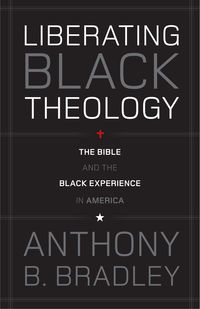"Liberating Black Theology" by Anthony B. Bradley. A Review
Liberating Black Theology: The Bible and the Black Experience in
America
Anthony B. Bradley
Crossway
1300 Crescent Street
Wheaton, IL 60187 USA
Wheaton, IL 60187 USA
ISBN: 978-1-4335-1147-9; $17.99; 28 February 2010
Reviewed by Rev. Dr. Michael W. Philliber for Deus Misereatur.
Biblical and Black 5 Stars of 5
It was bound to happen. It was Black History Month, I had just gone to a Martin Luther King Jr.
memorial service, and then attended my quarterly Presbytery meeting where my
denomination is presently in the topsy-turvy toils of hammering out how to
pursue racial reconciliation. So there I was at a Lifeway bookstore looking for commentaries on Proverbs to help with
a new sermon series when I turned around and saw it, squeezed in tight between
other books on pastoral issues. I thought to myself, “Well, I’ve never read
this fellow, but the book looks perfect for this month,” and snatched up a copy
of “Liberating Black Theology: The Bible and the Black Experience in America.”
This 208 page paperback is written by Anthony B. Bradley, associate professor
of theology and ethics at The King's College, Research Fellow for the Acton
Institute for the Study of Religion and Liberty, and a commentator on current
issues for major broadcast media to include NPR and CNN/Headline News, and is
for thoughtful adults, pastors, historians of Black History in America and
theologians.
“Liberating Black Theology” is meant to be an
introductory foray into black liberation theology, teasing out many of its
clear ideas and some of its subtle nuances. Bradley’s evident focus is “on the
role that victimology has played in the rise and fall of black liberation
theology” and that this view of perpetual victim is its “major flaw” (14). The
author unpacks, in five out of his six chapters, how this starting assumption
of victimhood has played out in, on the one hand, adopting Marxism as an
ethical framework in black liberation theology, and on the other hand, fostered
an “ever-greater separation from the Scriptures as well as from the mainstream
black church” (189). The historical and ideological study between the covers of
this book is helpfully clarifying for all who are involved in making headway in
the areas of Biblical justice and racial resolution within Christ’s Church.
Though Bradley brings out helpful correctives all the
way through the book, it’s in the sixth chapter that he pointedly maps out the
way forward, “Is There a Future for Black
Liberation Theology?” Here is a plan
that “is not grounded in a victimized black identity but is grounded in the
necessary trajectory of God’s redemptive mission” (180). The author sketches
out five areas that are essential to moving black liberation theology back onto
a solid foundation that will enrich the whole of Christ’s Church, and bless the
black church in America. The starting point is to return to the absolute of the
Trinity, and then to embrace unequivocal place of the primacy of biblical
authority. Next, flowing from the first two items is to reaffirm human dignity
that is substantiated by our being created in the image of God, instead of race.
Bradley moves on and points to the
importance of rediscovering the balanced biblical doctrine of sin, which is
both personal and social. And finally, formatting the concept of justice that
is in keeping with the bigger story of God’s redemptive mission, because social
action “and evangelism are works of the church in the world. But social justice
issues, while vital, do not constitute the totality of what God intends for a
covenantal relationship with his people and his world” (189-90).
What a way to spend most of Black History Month, to be
reading “Liberating Black Theology” written by an African-American thinker and
theologian! This book is essential reading by denominational movers and shakers
who want to help their denominations make godly, wholesome strides in racial
reconciliation; for black and African theologians and pastors who desire to
fortify their people; as well as Anglo and Hispanic and Asian theologians and
pastors! This introductory work on the subject could well become a sound and
solid entry point for better ways of thinking and acting on ethnicity in the
church, and race within society. I warmly commend this book!




Comments